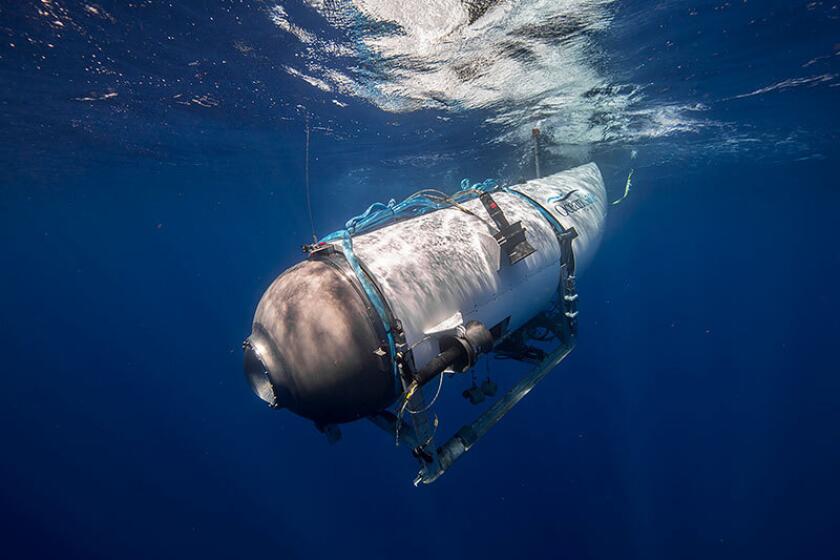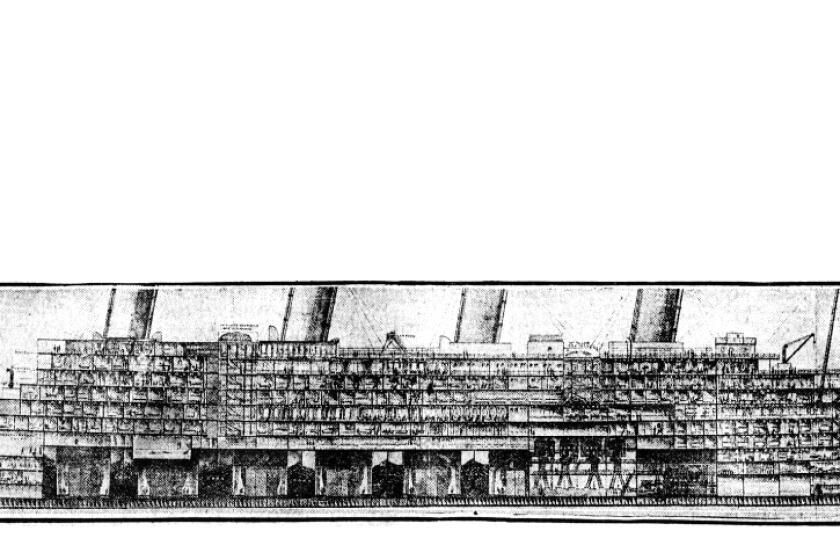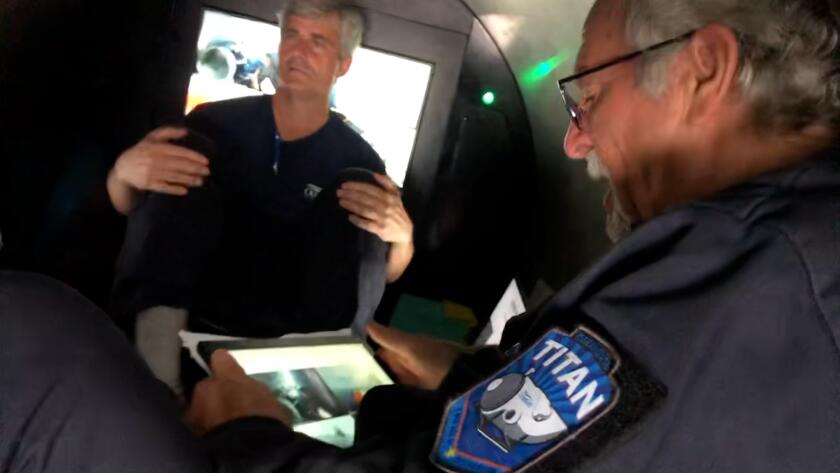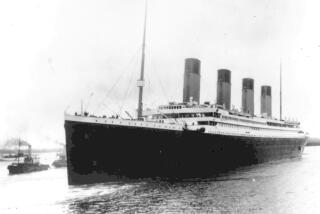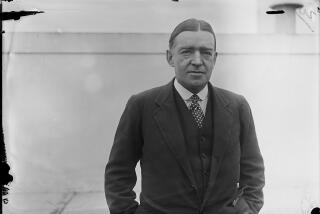He took an OceanGate sub trip to the Titanic. Now he has ‘survivor’s guilt’
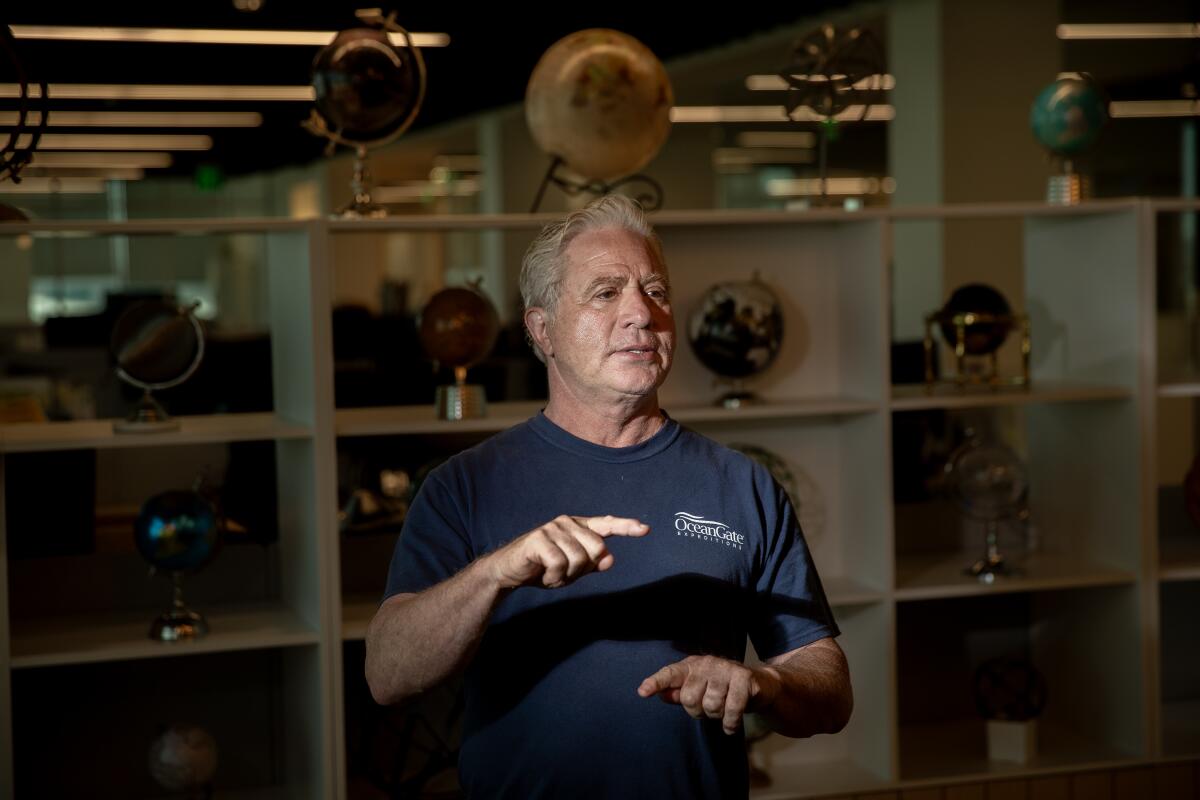
Bill Price had complete faith in Stockton Rush.
Even when Rush’s experimental submersible Titan lost communication with the mother ship about an hour into its descent toward the Titanic shipwreck on its maiden voyage in 2021.
Even when Price realized the vessel’s propulsion system was malfunctioning.
Even after he became aware there was an issue with the mechanism that releases weights off the craft so that it rises back to the surface.
“There was some apprehension of how are we going to get back up,” Price told The Times on Thursday.
The five people aboard a submersible that vanished on a trip to explore the Titanic wreckage have died after a catastrophic implosion, the U.S. Coast Guard says.
For the record:
7:23 a.m. June 23, 2023In an earlier version of this article, the first name of Paul-Henri Nargeolet, a French explorer known as “Mr. Titanic,” was misspelled as Paul-Henry.
Rush, the chief executive of OceanGate, which designed and operated the submersible, and Paul-Henri Nargeolet, a French explorer known as “Mr. Titanic,” remained calm.
They came up with a solution to get the sub back to the ocean’s surface, Price said. Nargeolet and Rush urged Price and his fellow passengers to rock from side to side, swaying the sub to dislodge the weights that held it down. Slowly, they began to hear the sound of metal falling from the vessel.
“When we heard our first clunk, that was such a relief,” Price recalled.
On April 16, 1912, the Los Angeles Times chronicled the sinking of the Titanic. This coverage is republished here in full, with changes only to capitalization and punctuation for ease of readability.
The sub resurfaced, and despite the mishaps, Price felt confident in the craft and its operator. He and the other passengers all opted to join Rush and Nargeolet for another trip the next day.
Video taken by a passenger on the first trip Titan took to the Titanic shows Stockton Rush and Paul-Henri Nargeolet, two of the men who died this week when the submersible imploded in the Atlantic Ocean.
Rush and Nargeolet were two of the five occupants of Titan when it imploded near the site of the Titanic wreckage Sunday. The craft’s disappearance less than two hours into its latest voyage sparked a massive manhunt involving U.S., French, British and Canadian governments as planes, boats and submarines desperately scanned the North Atlantic for the lost submersible, fearing it was stuck underwater with a 96-hour supply of oxygen.
Debris from the demolished sub was discovered Thursday on the seafloor by underwater robots. The wreckage was consistent with the “catastrophic loss of the pressure chamber,” officials with the U.S. Coast Guard said.
Price, a 71-year-old retiree from Manhattan Beach, worked in the travel business his whole career. He is not a billionaire. He was able to afford the trip on Titan, which costs around $250,000, by doing some marketing work for OceanGate and using money he received from the sale of a property. An explorer and a history buff, Price was delighted by the opportunity to see the Titanic up close.
“It was something I’ll never forget the rest of my life,” he said.
He recalls the wall of the bow as they first approached in the dark depths, around 13,000 feet below the surface. Nargeolet pointed out the captain’s quarters, where they could see the captain’s bathtub filled with debris. He remembers the decay of the wooden decks. He also remembers the poise of Rush maneuvering the vessel with a video-game controller, and Nargeolet’s encyclopedic knowledge as they traversed the resting place of the doomed ship
The exploitative coverage of the death and terror unfolding in real time as the search for the Titan sub continued was compounded by the public’s reaction on TikTok and Twitter.
.
Now, Price is struggling knowing what could have occurred on his trip, as well as grieving the loss of two men he respected deeply.
“I do have survivor’s guilt,” Price said.
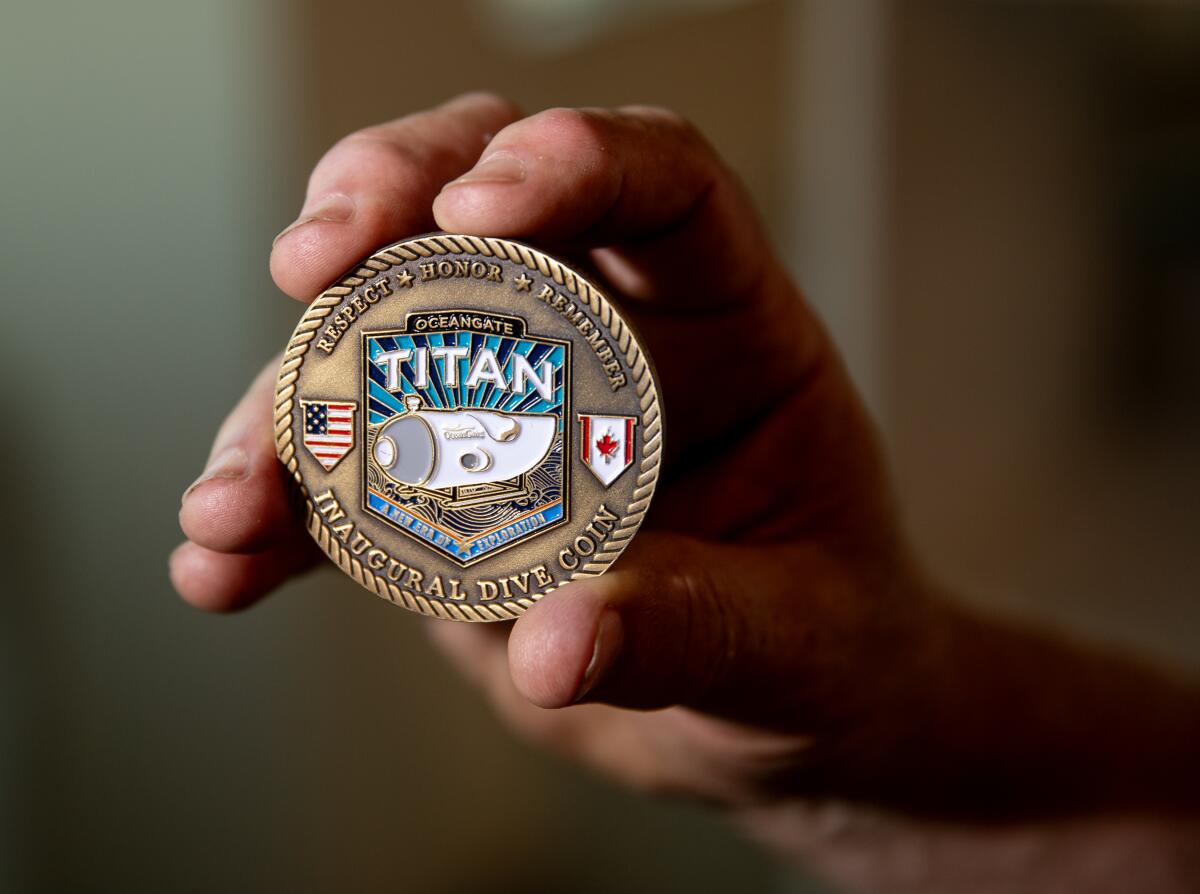
Price now carries a coin he was given, courtesy of OceanGate, after his dive down to the Titanic.
“Titan,” the coin reads. “A new era of exploration.”
“Inaugural Dive Coin,” it says. At the top: “Respect, Honor, Remember.”
Price, along with some others who have worked with OceanGate, is hoping to reframe the narrative around Rush and the company. Some in the industry raised concerns about the safety of the Titan sub, which did not follow all of the protocols expected in the submersible industry.
Rush chafed at regulations, which he said slowed innovation and made private enterprise in submersibles more costly.
“One of the jabs that gets thrown at us is: ‘Hey, you aren’t certified.’ But how can you do something new and get certified?” Rush said in a 2022 interview in Maptia. “If the rules exist for how to do it, then you are operating outside of the rules by doing something different. I think it was MacArthur who said, ‘You are remembered for the rules you break.’ We try to break the rules intelligently and intentionally.”
Still, Price believes that Rush, an aerospace engineer, was cautious and methodical.
“I certainly didn’t feel that Stockton was a daredevil — not even close. It was pretty much the opposite,” Price said. “Every evening after the dive everyone would get together in the briefing room and do a debriefing, and he was adamant that he doesn’t care, you can’t hurt his feelings, say whatever you want to say.”
Officials say an investigation into the implosion will probably examine industry regulations and standards. But it remained unclear Friday which country would lead the probe. The catastrophe occurred in international waters, and search efforts included resources from several countries.
A government official familiar with the investigation but not authorized to discuss it publicly said Canada probably would take a leading role. The Canadian research vessel Polar Prince was the point of contact for the Titan after it launched from St. John’s, on the Canadian island of Newfoundland, and before it went missing.
The official told The Times that crews would collect the Titan’s wreckage in an effort to reconstruct the vessel’s final hours and determine what led to the implosion.
Price trusted Rush with his life and said he still would, despite the fact that the Titan’s final dive ended in catastrophe.
“In terms of regret, I certainly don’t have any regrets. I do feel that maybe at the time I jumped into it without knowing everything,” he said.
It had not yet become a massive international story when Price heard from associates at OceanGate that the submersible was missing. Still, he knew something was wrong.
“The amount of time that had gone by, I think six or eight hours. Something should have happened by then,” he said.
Though Price hoped for a rescue, he thought it more likely that the submersible had imploded. He said he preferred knowing that the occupants’ deaths were speedy and without suffering, rather than a slow demise as the oxygen supply ran out.
“It does give me solace, a limited amount, to know that they didn’t have to endure extreme anxiety and concerns over a period of time,” he said.
Times staff writers Richard Winton and Alexandra E. Petri contributed to this report.
More to Read
Sign up for Essential California
The most important California stories and recommendations in your inbox every morning.
You may occasionally receive promotional content from the Los Angeles Times.

